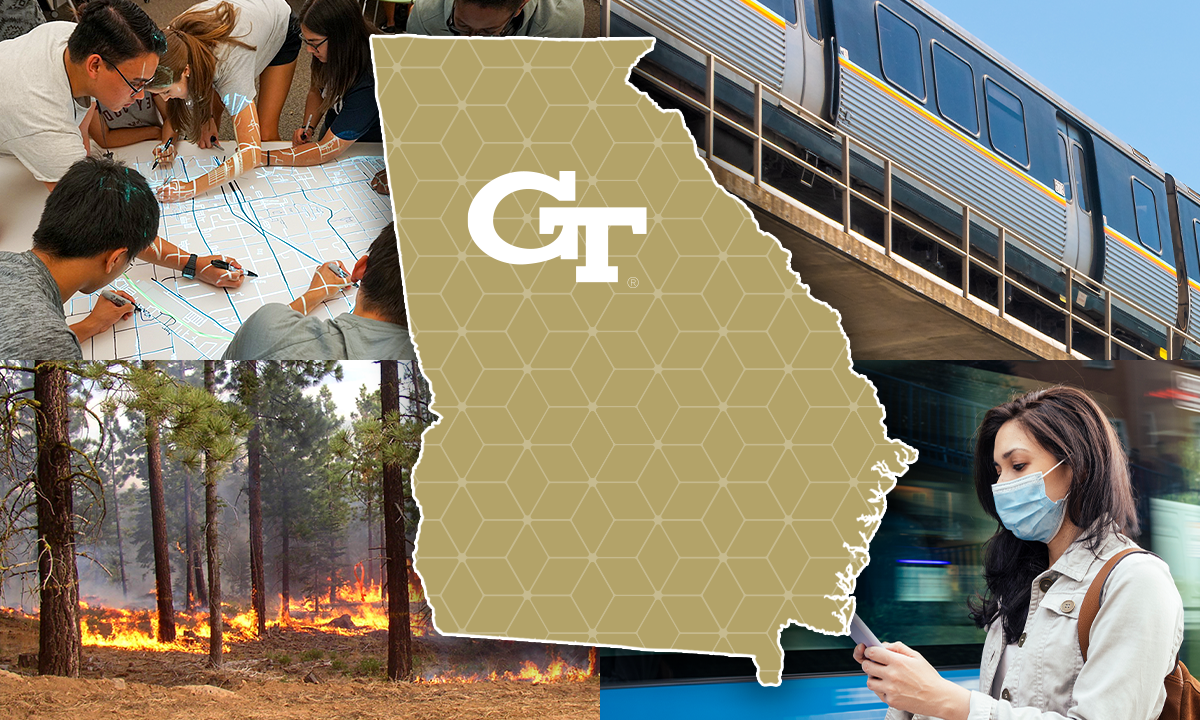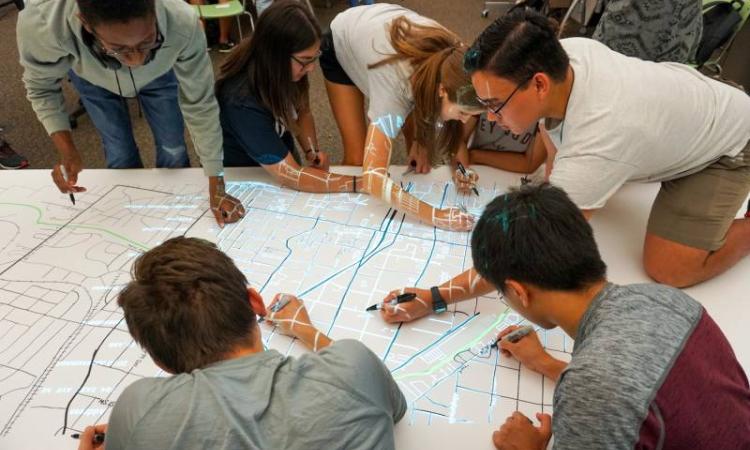New federally funded grants will address issues facing underrepresented communities

Four new, federally funded awards totaling $5.5 million will allow Georgia Tech researchers to extend their positive impact in Georgia's underserved communities. Three of the projects are led by the College of Engineering. The fourth is coordinated by the Ivan Allen College of Liberal Arts (IAC).
The grants, awarded by the National Science Foundation (NSF), Environmental Protection Agency, and the Department of Energy, will bring Georgia Tech researchers to various parts of the state. Transit and transportation access will be the focus in metro Atlanta. Those studying fire emissions and their impact on health will visit K-12 schools in southwestern and western Georgia. Faculty members will also work with Savannah middle schoolers to create maps in an effort to increase youth advocacy that addresses the effects of climate change.
The projects are the latest in Georgia Tech's efforts to fulfill its ongoing mission of progress and service to Georgia, the nation, and beyond.

Improving Transit Together
A $2.5 million NSF grant, led by the School of Civil and Environmental Engineering (CEE), will focus on Peachtree Corners in Gwinnett County. Researchers will develop systems aimed at improving travel mobility, safety, and equity. The four-year project will create machine learning tools and policies that allow community members to share information more efficiently so that travel behaviors can be better understood.

Making Public Transportation Easier
The H. Milton Stewart School of Industrial and Systems Engineering will lead a $1 million NSF project that partners Georgia Tech with MARTA. The program will use artificial intelligence, data science, and operations research to reduce costs and wait times for people without convenient transportation options. The goal is to better connect residents in underserved communities to jobs, healthcare, education, and healthy food.

Making Maps to Inspire Youth Advocacy
The NSF has awarded a $1 million grant to faculty in IAC and the College of Design to help build disaster resiliency in Savannah's environmentally vulnerable communities. Middle school students will use a Georgia Tech-created mapmaking tool and curriculum to learn how hurricanes, flooding, and other natural disasters are affecting their community. They will use that knowledge to advocate for change from local policymakers. The program seeks to build increased youth advocacy among Black, Indigenous, and People of Color (BIPOC) communities.

Protecting Kids From Harmful Emissions
Controlled burns are an important tool for forest management but are also a major source of air pollution in the Southeast. They release more particulate matter into the air than cars, trucks, factories, and power plants. To help children in Albany and Columbus, Georgia, CEE researchers will provide new equipment and daily fire reports for schools that are vulnerable to controlled burns. They will also develop new curricula for teachers and students that increase understanding of air pollutants, their sources, and mitigation measures.